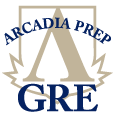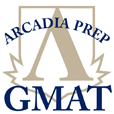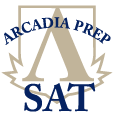PT 33 S1 Q10
Art historian: Great works of art have often elicited ... ...
Replies to This Thread: 0
|
----
Posted: 07/17/2011 18:05
This doesn't really make sense to me... "public funds should support art" simply looks like a restatement of the conclusion "we should not hesitate to use public funds" ...
Replies to This Thread: 0
|
----
Posted: 07/18/2011 00:09
In most cases, the Necessary Premise will bridge the gap between the argument's final premise and its conclusion. But that's not really what's going on here.This question requires you to take a step back and find the assumption that underlies the argument as a whole.
Let's break down the argument, and then we'll take a look at the answer choices.
Premise 1: Great works of art often provoke outrage.
Premise 2: *Examples*
Premise 3: It is clear that great art is often shocking.
Conclusion: We should not hesitate to use public money to fund art just because people find it shocking.
The following may have occurred to you after reading the text: "Hey, never mind whether the art is shocking or not, should we be using public funds to support art in the first place?" If this question didn't occur to you, DON'T WORRY. This argument is a little weird.
Let's check out the answer choices so we can use the process of elimination:
"A": This is of no help. The conclusion doesn't require that a specific percentage of art be shocking. (There's no need to assume that "most" art is shocking.)
"B": This is one of those answer choices that seems to have all the right content. But if you think about it for a second, you'll realize it's irrelevant. The way in which Stravinsky and Manet got their art funded has no bearing on the argument.
"C": This is not helpful. The argument: the fact that art is shocking/offensive should not cause us to hesitate from using public funds to support it. This certainly doesn't require that art be less shocking today than it was during Monet's time.
"D": This answer choice might seem like it's simply repeating what was stated in the argument. But after reading it, take another look at the argument. The argument doesn't say that art should be funded with public money IN THE FIRST PLACE. So this answer choice IS required in order for the conclusion to follow. Just to make sure this is correct, let's check out "E".
"E": Anything that shocks is art? This is clearly not required by the argument.
So we can go ahead and select "D". If you confront another NP question where you find an answer choice that seems like a re-statement of a premise in the argument, read it again carefully. It's likely the correct answer choice.









